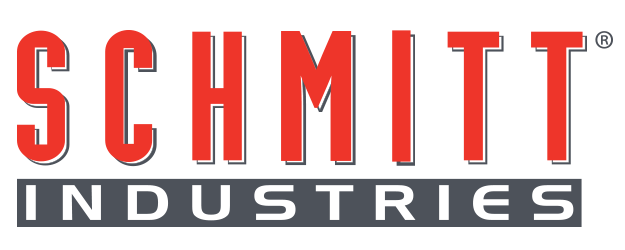Overview
The Acuity line of laser sensors are used for dimensional and positional measurement in a wide variety of industrial, commercial and research applications. Noted for both speed and accuracy, these precision instruments are chosen for the most demanding applications by integrators, machine builders and automation engineers. In 2020 we redesigned the AcuityLaser.com website for quick and easy access to essential information on Acuity’s non-contact laser measurement products.
Our Technology
Acuity laser sensors use non-contact measurement principles. Laser triangulation sensors measure distance by projecting a beam of laser light that creates a spot on a target surface. Reflected light from the surface is viewed from an angle by a CMOS detector array inside the laser sensor. The target’s distance is calculated from the image pixel data using the sensor’s microprocessor. The distance is transmitted through serial communications or analog outputs.
Acuity laser rangefinders employ a “time-of-flight” principle that measures the time light takes to travel to the target and back. The time delay is directly measured by comparing the signal from the laser with the delayed signal returning from the target. Acuity’s distance measurement sensors offers several advantages over competitive LIDAR sensors, including the ability to measure to dark and shiny targets and very high sampling speeds.
Our Markets
Acuity laser sensors are multi-purpose devices, selected by engineers to solve the toughest non-contact measuring applications. While typically considered a primary component rather than a stand-alone solution, typical users of Acuity products are original equipment manufacturers (OEM’s), electrical or automation engineers working for large corporations or system integrators, hired by clients to build a turnkey measurement solution that includes both hardware and software.
Operations that seek efficiency and improved manufactured product quality will select Acuity laser sensors for their high accuracy, fast speed and great durability. For example, forest products companies use Acuity sensors for dimensional measurement of logs and lumber. Steel mills integrate Acuity laser triangulation sensors to measure the width of continuously-cast, hot steel. Semiconductor processing equipment manufacturers use compact distance-measuring sensors to measure the position of components. State transportation engineers integrate Acuity laser sensors into high-speed road profiling systems to measure road quality. Hundreds of university professors and researchers implement laser distance sensors in their laboratory and field experiments. More examples of laser sensor applications can be found on the application pages of the Acuity website and on a dedicated industry application guide for laser sensor integrators.
Our Advantages
There are several manufacturers of laser sensors throughout the world, with most found in Germany and Japan. While our sensors are easily distinguished from competitive models based on technical specifications and performance characteristics, there are other advantages to selecting Acuity as a sensor vendor. Schmitt Industries is one of the few domestic manufacturers of these devices, located in the single largest market for these devices, the United States. Beyond our factory presence, US customers appreciate working with a local partner who offers direct factory support and service. The Acuity product line employs seasoned sales engineers to directly manage the US sales territory and distributors for international sales and support.
Visit Acuity Web Site